#prince edward tudor
Text
This Costume is worn on Zak Jenciragic as Henry Fitzroy in The Tudors: Arise, My Lord (2007) and worn again on Eoin Murtagh as Prince Edward Tudor in The Tudors: The Undoing of Cromwell (2009)

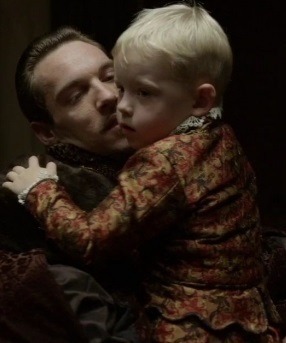
#recycled costumes#the tudors#henry fitzroy#prince edward tudor#historical drama#period drama#costume drama#reused costume
1 note
·
View note
Text
Tudor Week 2023

To celebrate our belated three-year anniversary we are hosting Tudor Week 2023. This is going to be hosted from Monday the 31st of July to Sunday the 6th of August.
The week will go as follows:
Day 1 - Monday, 31st of July : Favourite Tudor Rivalry
Day 2 - Tuesday, 1st of August : Favourite Female Tudor Family Member
Day 3 - Wednesday, 2nd of August : Best Tudor Myth
Day 4 - Thursday, 3rd of August : Favourite Male Tudor Family Member
Day 5 - Friday, 4th of August : Most Used Tudor Related Resource
Day 6 - Saturday, 5th of August : Favourite portrayal of a Tudor Family Member
Day 7 - Sunday, 6th of August : Favourite Tudor Mentor and Mentee relationship (can be a Tudor familial relationship, or a Tudor and a courtier relationship)
This can cover all events and media that a Tudor family member is present, so from Owen Tudor to Elizabeth Tudor, and may include spouses and acknowledged children of direct members of the Tudor family (if unsure who we cover please check our Family page). We have attempted to make it as broad as possible and no pressure if you are late with some of the days, we will still reblog.
Previous Years: 2021, 2022
Be sure to tag your posts TudorWeek2023 and DailyTudors, looking forward to seeing your posts!
- The Team at DailyTudors
#tudorweek2023#henry vii#henry viii#edward vi#mary i#elizabeth i#owen tudor#catherine de'valois#edmund tudor#margaret beaufort#jasper tudor#catherine woodville#elizabeth of york#arthur prince of wales#katherine of aragon#margaret queen of scotland#james iv of scotland#archibald douglas#henry stuart#anne boleyn#jane seymour#anne of cleves#kathryn howard#catherine parr#mary queen of france#louis xii#charles brandon#henry fitzroy#announcement
138 notes
·
View notes
Text
#owen tudor#jasper tudor#henry vii#arthur prince of wales#margaret tudor#henry viii#mary tudor#mary i#elizabeth i#edward vi#poll
43 notes
·
View notes
Text
J.L. Laynesmith taking the 'Buckingham Did It™' route for the murder of the Princes in the Tower AND the rumors of Edward IV's bastardy ... I have to laugh
#my post#history media#this was in her book 'Cecily Duchess of York' which I have ... Thoughts on#I really liked it overall - it was meticulously researched and gave me information that I hadn't previously known about Cecily#However this often contrasts with Laynesmith's own very evident biases assumptions and conjecture#and the effect is very jarring#This becomes slightly more pronounced after 1464 and actually ridiculous after 1483.#She also suggests that Henry VI may have genuinely died of a melancholy-induced stroke like Edward IV claimed which is just...lmfao#I don't know what to say at this point lol#To be fair she does specifically note that he died shortly after Edward arrived in London and that most contemporaries believed#it was far too convenient#which is far more acknowledgement and culpability than she gives Richard III whose culpability for the 'disappearance' of his nephews is#literally never touched upon - the blame is conveniently dumped on Buckingham#honestly the whole Deal with Buckingham is so odd. dude was a political neophyte; was given a primarily ceremonial role by Edward IV#throughout his reign and was younger than Richard (who was a seasoned politician). What makes you think Buckingham of all people#was some kind of political genius and making decisions over RICHARD of all people lol?#anyway#This book was pretty decent with Margaret of Anjou which was great#it was less decent with Elizabeth Woodville which was not so great :/#some of the assumptions it made (for Cecily's benefit naturally) were so weird#and the way she 'reassessed' Elizabeth's role in 1483 was very distasteful#I might make a separate post on that because it was very annoying#(also claiming Henry Tudor landed with 'a small band of Lancastrian exiles' - yeah no. the majority of the 'exiles' who supported him were#Yorkist aka Edward IV's supporters who opposed Richard. because this was very much an internal civil war between the dynasty#and Henry became a claimant only after being chosen by Yorkists after the October risings made clear the Princes were dead#the claim that challenged Richard's was Elizabeth of York not Henry's. let's not twist words here)#(ALSO I'm sorry but William Stanley certainly did not choose to commit his troops to Henry Tudor because Henry was 'his brother's stepson'#he did that out of loyalty to Edward IV and his children as Henry was the chosen claimant of the Yorkist faction#hence why he may have betrayed Henry VII in the 1490s for Perkin Warbeck who pretended to be Edward's second son. so jot that down)#you really see these small minor details which are very much chosen purposefully and paint a very different picture lol
7 notes
·
View notes
Text

#tudor family#tudor dynasty#arthur prince of wales#arthur tudor#henry viii#edward vi#tudor confessions
66 notes
·
View notes
Note
Sorry for bothering you but I would like to know ,what is your interpretation of Elizabeth ,Edward and Mary’s relantionship? I heard a lot of stuff and I wanna know your opinion
Also ,the quote about you picking Anne for a girl’s night ,in which book it is ?
Aaah, errrm...again, I might update this in more detail later, because I have a lot of thoughts on this. (He said, before going Full Meta Pretentious)
And you are never bothering me. Sometimes I have spoons, and sometimes I don't.
Broad strokes:
Mary had conditional affection for her siblings so long as she did not see them as a threat, and so long as they were not significantly empowered. So, this is why she seems to have had more tenderness towards Edward while he was Prince rather than King, why she seems to have not had affection for Elizabeth until she was disempowered in 1536 (and then, lost it, once Elizabeth was her own heir and very beloved by the people).
She was also holding, as one of the Acts during her reign makes clear, the belief that they were bastards, and she was not. So she always felt an inherent superiority towards them that's underlying the affection...it's a sort of patronizing affection, really. It's not less authentic for being so, just more complex. There's also the likelihood that this has been nurtured by her faction, who seems to have held a long bitterness towards the memory of AB in the existence of Elizabeth, to the literal death-- among Margaret Pole's last words were an exhortation for those in attendance to her execution to pray for the lives and souls of the King, Prince Edward, and Princess Mary...Elizabeth was omitted. Did she believe she was not the King's daughter, or was this an implication that Edward & Mary were the only 'legitimate' children? Had Fitzroy been alive during this time, we could maybe better understand her intent behind this, had he been omitted as well, unfortunately we don't know.
Edward believed himself superior to both his sisters, but seems to have been more patronizing towards Mary, despite being the younger, even before becoming King. There's not an equivalent letter about Elizabeth to the one he wrote about Mary, where he's scolding her for dancing so much and such. But, he's in-waiting to becoming the most important man in the kingdom (arguably, he is that, as his father is the past, and he's the future), and has been told that it's his place to be the moral standard and instruct his future subjects. This is all part and parcel of that, although one wonders if there's some insecurity underlying all this, because Edward was very intelligent, and he wouldn't have been unaware that much of Catholic Europe believed Mary was legitimate.
Elizabeth he's closer to in age, Elizabeth he's brought up with, Elizabeth he's educated alongside. Elizabeth was always more conformable than Mary, and seems to have genuinely revered him both as Prince and as King. So, Edward's affection for Elizabeth was probably less complex than his for Mary (which turned mainly to resentment). On the other hand, he did eventually write her out of the succession, which is where the superiority comes in (although we don't know if he would have done so in any context...had Elizabeth married a Protestant, had Elizabeth had a/ child/ren by 1553-- specifically and 'better', a son-- I think it's entirely plausible he would have made her, at the least, regent to her child in his will).
Onto Elizabeth...Elizabeth believed herself Mary's superior insofar as intellect, and perhaps even her equal or better, insofar as birth. She might have believed that by the terms of her father's Succession Act (one condition of which was, Mary would maintain the Henrician settlement insofar as the Anglican Church-- something Mary reversed), she was entitled to the throne. Mary was both her persecutor and savior: she arrested her, but she also released her. She then tried to place many conditions upon her freedom, including marriage to men of Mary and Philip's choice, not Elizabeth's. Ultimately, she did not disinherit her, and Elizabeth's transfer to power was as smooth as it was, in large part, because Mary relented and maintained her as heir.
They were also all (although not equally) bonded through being motherless, and being completely orphaned at the same time, also, although at very different stages in their lives. Mary is the only one that truly had any memory of her own mother, was this something they envied? Edward was the only one that truly had the memory of his mother openly honored and revered, was this something his sisters envied? For Elizabeth and Edward, it's another bonding point, although probably not ever one made explicit, or actually discussed: they're off-center, they are only half of what they 'should' or 'would' have been, because half of what made them is no longer there. Did they have this sense that neither could escape, of an absent filial imprint, of the palimpsest of what was there before, desperately searching fresh ink? Of absent or unfulfilled identity, of absent maternal protection?
What do you do when your father is your god? How do you comprehend your world when he's not there anymore?
|
That's from an interview of both Julia Fox & John Guy, about their dually authored book, Hunting the Falcon. The quote is about AB, although personally if I said it, it would apply to Anne of Cleves, as well.
#redrosesandcharmingsouls#but yeah mary had a much firmer sense of her mother. it was undeniably tragic that she was separated from her at fourteen#on the other hand; fourteen was the age of maturity then. so technically she had known her mother as both a child and an adult#smth neither edward or elizabeth really had in the same way#also: albeit edward was in a very different situation#he didn't have a younger brother as arthur did#the kingdom was literally without a prince besides very briefly henry nyp for nearly thirty years#but this is part of why i sort of am always like...lol.#@ basically the idea that arthur tudor was perfect and would reign over a comparative utopia as king#arthur was also told he was the most important man in the kingdom since he was a literal infant.#i am sure he could sometimes be an asshole. he just didn't live long enough for us to be able to point to anything specific#whereas hviii was told this at what. eleven?#and we see what happened there. so like. jesus effing christ#at the pastelification of every single arthur tudor lives AU#imagine how TIRED we are......
5 notes
·
View notes
Text
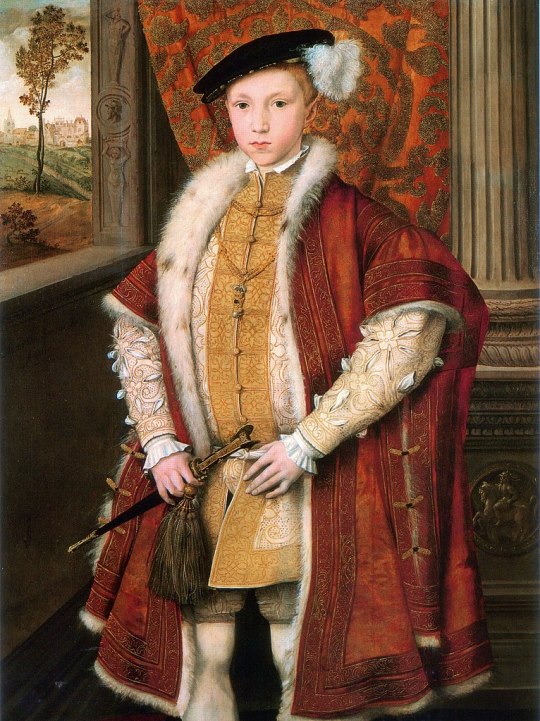
Edward VI of England as Prince of Wales by William Scrots, 1546.
#classic art#painting#william scrots#flemish artist#16th century#portrait#male portrait#indoor portrait#edward vi of england#prince#tudor#fashion#window view
17 notes
·
View notes
Text
•Arthur's Appearance: an interpretation by historian Sean Cunningham•
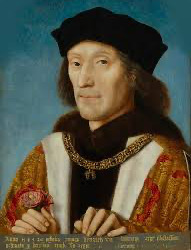
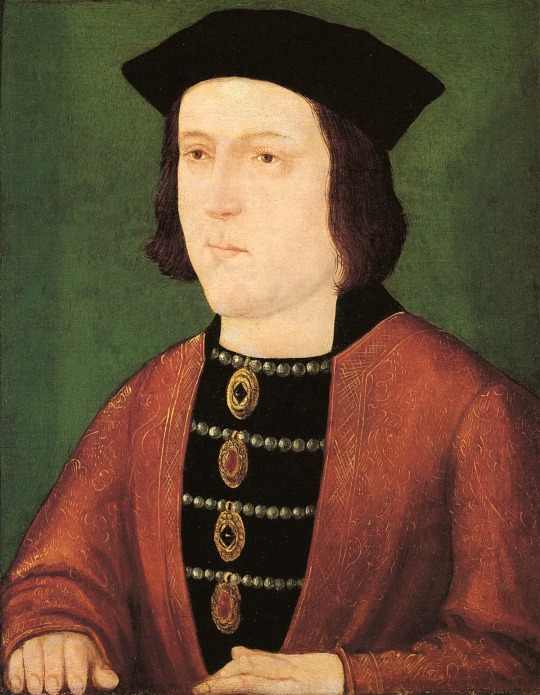
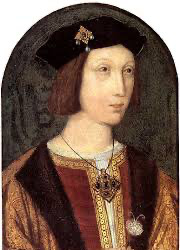
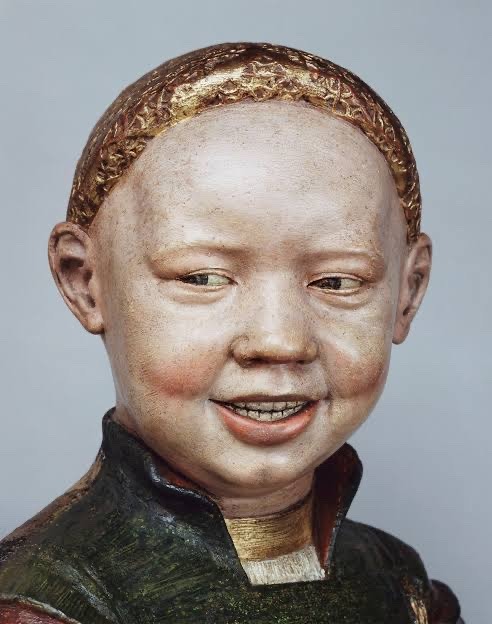
“The known portraits of Prince Arthur show a tall boy, possibly in his early teenage years. He has auburn hair and pale skin and a long, far, angular face. He has a slim and wiry build and is dressed very richly with intricate pieces of jewellery in his hat and around his neck.
His father Henry VII was also known for these physical characteristics, and the prince also shares the hoods and bagsed eyes of his grandmother Margaret Beaufort.
A quick correlation of these features makes it tempting but (dangerous) to suggest that Arthur therefore was blessed with the same kind of personality ascribed to his father and to his Beaufort relatives - serious, focussed, dogged, suspicious and calculating.
Arthur's brother Henry, on the other hand, in near-contemporary pictures, has the round, slightly chubby appearance of his mother, Elizabeth of York, and her father Edward IV. A painted terracotta bust by Guido Mazzoni from the Royal Collection is thought by some experts to represent a laughing Prince Henry aged about seven, from the period 1498-9.
The unproven association of this work with Henry has made enough of a connection for later writers to link imagery and personality. It is all too easy to use identifiable images of people from the past to begin to reconstruct what their personalities might have been like.
The works above, when addressed together, instantly separate the character of the two princes and tend to confirm our beliefs about written descriptions of their personalities.
Prince Henry was full of life, carefree and impulsive; Arthur was cold, detached and careworn. Written comments and notes often help to qualify such descriptions but they might also only compound what we have taken from visual evidence.
The ambassador to Milan in September 1497 described Arthur as taller than his age might suggest, with striking grace and beauty. The prince's conversations in Latin were also noticeably impressive. That brief summary suggests that Arthur's education was working very effectively.”
Cunningham, S. Arthur Tudor: The Tudor King Who Never Was.
#arthur tudor#prince Arthur#tudor dynasty#house of Tudor#henry vii#elizabeth of york#henry viii#Edward Iv#margaret Beaufort#house of Beaufort#plantagenet dynasty
19 notes
·
View notes
Text
does anybody remember when I accurately predicted how game of thrones tv show would end bc I had a basic understanding of how the Tudor dynasty ended. lol.
#like genuinely the parallels in the book aren’t even slick#<-although again let’s hope the book series doesn’t end same as the show LOL#Robert = Henry viii#Joffrey and tommen as Edward vi (boy prince who dies young)#dare I say stannis = Mary I bc religious extremism#Cersei as lady Jane grey probably#or if you want the whole ‘named someone their successor in their will and got killed very quickly’ you could say that she’s Ned#although then succession order would be wrong#that does leave us without an Elizabeth though. renly is my Elizabeth I though 😞#and THEN you get James I coming down from#Scotland to sort out everyone’s mess 🥴#<- and that’s why I guessed a stark. and an unimportant one at that who hadn’t been involved in the fighting I argued. it’s funny that I was#except he was gay and everyone hated him and he set in motion what led to the civil war so 🤷♀️#anyway as a girlie with a history degree nothing in those books is insanely#shocking to ME personally. although it’s interesting to see how my opinions have shifted in the last 4 years#early modern U.K. isn’t even rly my era and I still know this sndjdkfkf#also I know#in theory everyone says the books are based on war of the roses but imho robs rebellion works better in that sense than anything else#so then I use the Tudors as my framing for what goes on during the timeline#but again it’s all circular bc you have the war of the roses and not too much later you get the English civil war so#anyway dynasties I actually studied at uni are like. the Carolingians and Capetians and Hohenstaufen’s / Holy Roman Empire#and then tang song and Sui . which all give me a lot of perspective on how these processes work#election based succession no look at Holy Roman Empire#‘best amongst brothers’ succession yes look at dynastic China#my conclusion here is that renly was correct rip 🫡#<- although I would be remiss to not highlight that several Chinese dynasties did practise primogeniture. but many of the most successful#ones didn’t#like I still can’t believe so many fans still think renly was insane like blood tanistry literally was such a thing historically that it#even has a silly sounding name. it was widely practised#him wanting to call an older brother is also what dany did and no one shits on her for that 🥴
4 notes
·
View notes
Text
Mama
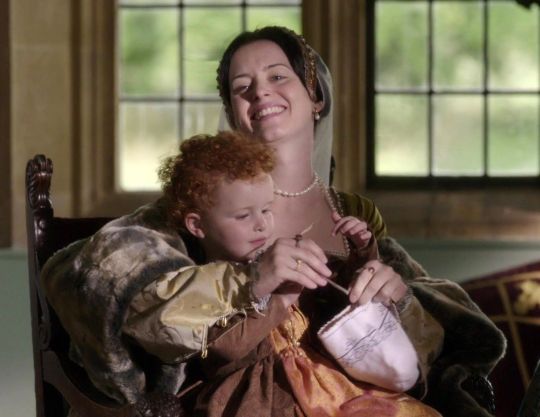
Papa
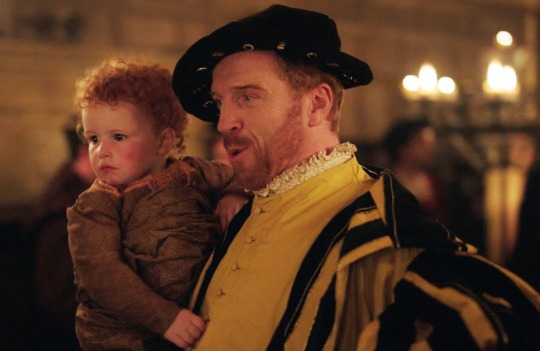
And me
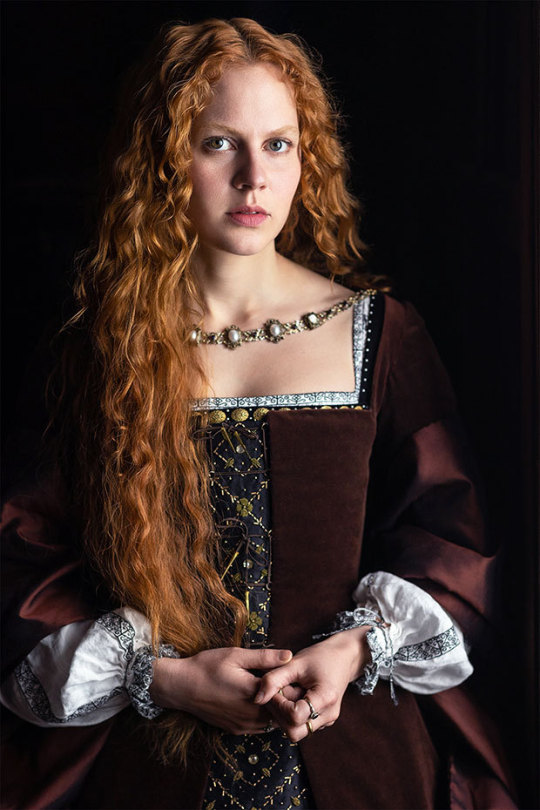
Wolf Hall meets Becoming Elizabeth 👑👑🌹
#princess elizabeth#anne boleyn#henry viii#wolf hall#becoming elizabeth#alicia von rittberg#claire foy#damian lewis#tudors#tudor#the tudors#princess mary#prince edward#👑👑👑
44 notes
·
View notes
Text
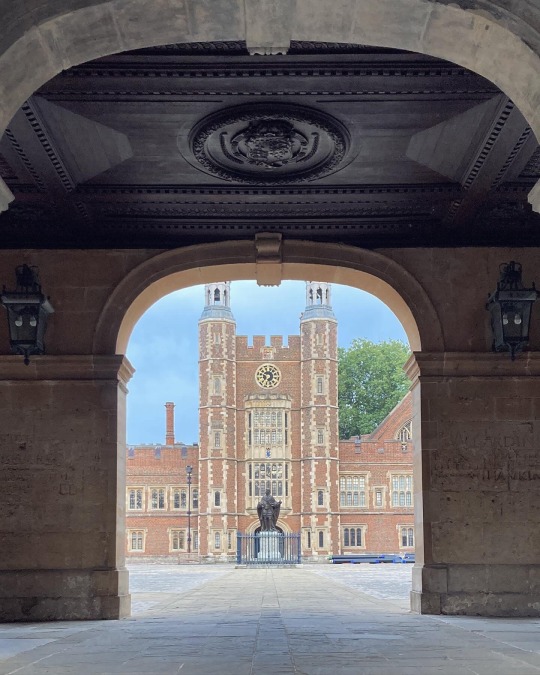

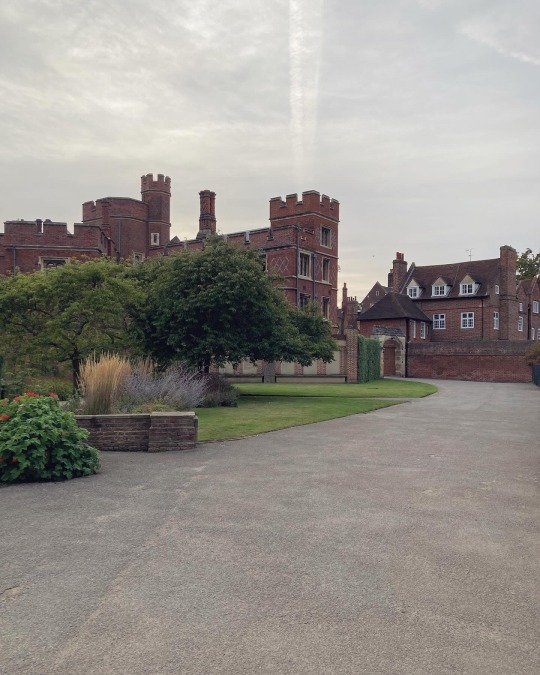
Eton College holds a cherished place in the annals of His Serene Highness the Count of Münnich and Reutern’s family history, with their connection dating back to its very foundation.
The illustrious Founder of Eton College, King Henry VI, is His Highness’s seventeenth great uncle. This noble lineage traces its roots through his half-brother, The Count’s seventeenth great-grandfather, Edmund Tudor, 1st Earl of Richmond. Notably, King Henry VI was also a great-grandson of His Serene Highness’s eighteenth great-grandfather, John of Gaunt, 1st Duke of Lancaster.
The family’s ties to Eton College have remained steadfast across generations. Many generations of The Count’s grandfathers and extended family members were privileged attendees of this institution. From those bygone days to the present, Eton College continues to hold a special place in the hearts of His Serene Highness’s family.
#eton college#count joshua von reutern#the count of reutern#graf von reutern#joshua wood#josh wood#comte de reutern#joshua edward dylan wood#graf von münnich#joshua dylan wood#josh wood film producer#King Henry VI#King Henry VI of England#Henry VI#His Excellency The Count of Münnich and Reutern#Seiner Erlaucht Herrn Graf von Münnich und Reutern#Edmund Tudor 1st Earl of Richmond#John of Gaunt 1st Duke of Lancaster#Prince William#Prince Harry#Duke of Cambridge#Duke of Sussex#Prince of Wales#Son Altesse Monseigneur Comte Joshua de Münnich#Son Altesse Monseigneur Comte Joshua de Münnich et Reutern#Son Altesse Monseigneur le Comte de Münnich et Reutern#Münnich-Reutern#Reutern-Nolcken#Grey#Wood
2 notes
·
View notes
Text
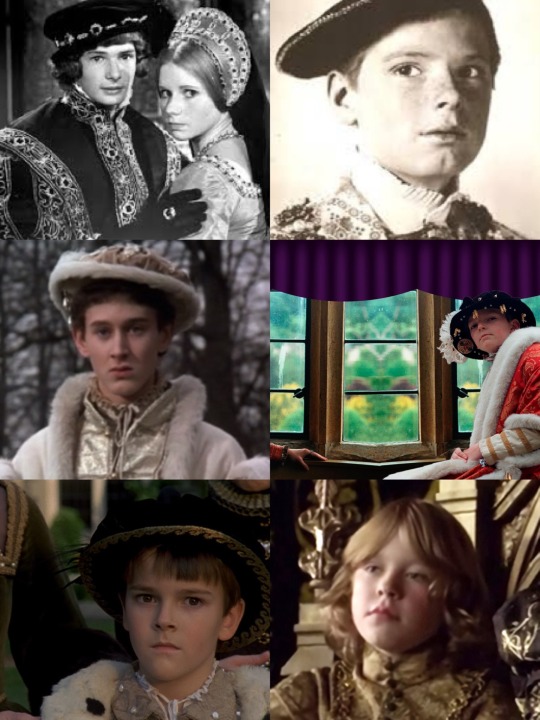
King Edward VI of England and Ireland depicted on pop culture (from left to right) before “Becoming Elizabeth”.
26 notes
·
View notes
Text
Who is interested in a Tudor Week 2023?
#henry vii#henry viii#edward vi#mary i#elizabeth I#owen tudor#catherine de'valois#edmund tudor#margaret beaufort#jasper tudor#catherine Woodville#elizabeth of york#arthur prince of wales#katherine of aragon#margaret queen of scotland#james iv of scotland#archibald douglas#henry Stuart#anne boleyn#jane seymour#anne of cleves#kathryn howard#catherine parr#mary queen of france#louis xiii#charles brandon#henry fitzroy
70 notes
·
View notes
Note
Do you think Rhaenyra would have killed her siblings or it was mere paranoia on Alicent's side? The book doesn't provide a solid answer for this, and in the show it's clear that Rhaenyra would never harm her siblings.
Hi anon, I kind of went into it in this post, and although that ask was about Jace vs. Aegon III, I think the principle remains the same. In short, no, I don't think it was paranoia, but to understand why, we have to understand why Rhaenyra's brothers pose a particular threat to the stability of Rhaenyra (of Jace's) rule. Keep in mind, this isn't a moral failing specific to Rhaenyra, but simply a byproduct of the conditions of her inheritance.
I don't think Rhaenyra would have wanted to kill her siblings (or their kids), or even have planned to kill her siblings, but I also think that ultimately what she wanted wouldn't matter very much. All it would take would be someone wishing to rise in her esteem claiming that Aegon was fermenting rebellion, perhaps producing a forged letter as evidence, or an eyewitness who would swear that he had been secretly meeting with former greens. Could she risk it? Her brothers are weapons that can always be used against her. And at some point, it would be out of her control. Rhaenyra won't live forever, nor will Daemon, and when Jace attempts to take the throne, with no less than 7 legitimate male claimants alive who would have a claim ahead of him, there are bound to be challengers. The Blackfyre rebellion began with much flimsier pretexts.
We have real life examples of this. Henry VII intended to keep the remaining Plantagenets alive when he took the throne, as long as they stayed loyal. After all, they were his wife's family members, and killing them off would not be a good look. But the remaining Plantagenets would always be a threat to the Tudors. Ten year old Edward Plantagenet, the son of George of Clarence, was imprisoned in the Tower of London for 14 years before he was executed in 1499 for a supposed connection to Perkin Warbeck's scheme. Henry VII finally took action at least in part because he was negotiating a betrothal between his heir and the daughter of King Ferdinand and Queen Isabella. The Spanish monarchs did not want their daughter marrying a man whose succession could be challenged, and so Edward, the strongest claimant at that point, had to go. Henry VII's son, Henry VIII, increasingly worried about the stability of his own succession, became vulnerable to the whisperings of opportunists looking to rise in the king's esteem and eliminate their own political enemies. At this point, the remaining Plantagenet claimants became a source of paranoia, justified or not. The arrest and execution of Margaret Pole, the niece of Edward IV and Richard III, was based upon a tunic found in her home that supposedly represented her support for her son's claim to the throne and the restoration of the Catholic church in England. The tunic was almost certainly planted by Henry VIII's chief minister, the protestant Thomas Cromwell, the same man who orchestrated Henry's divorce from Catherine of Aragon (yes, the same princess whose hand Edward Plantagenet had died to secure). And Henry VIII liked Margaret, she'd been the governess to his daughter, and though they had their ups and downs, he certainly didn't hate her. Still, when her son was put forward as a rival claimant and she was accused of supporting him, she had to go too. And of course, going backwards a bit, there are famously the princes in the tower, Edward and Richard, sons of King Edward IV, who despite having been officially declared bastards (a law, you see, was not enough), were still enough of a threat to the throne that they were (most likely) murdered, whether by Richard III or one of his associates. Mere rumors that those boys still lived sparked rebellions during the reign of Henry VII.
And you can say well, there's a difference, surely, in that Rhaenyra is the rightful queen, and these other people were not? But "rightful" is not some inherent state of being, it's dependent upon who is in power. Every person who sits the throne believes themself to be the rightful king or queen. But Rhaenyra in particular gained her position because her father exercised his power and declared her heir in defiance of the expected order of inheritance, contradicting the very decision that made him king in the first place. After Viserys dies though, for all intents and purposes his wishes cease to matter. He is no longer king, and lacks any mechanism by which to enforce his wishes from beyond the grave. At that point, people will choose to support one claimant or another, based upon their own concerns (dragon math, precedent, oaths, promises made by one or the other, existing family bond) and to consider Rhaenyra or Aegon (or any other claimant down the road) the rightful king/queen. Rhaenyra's security upon the throne, like the position of Henry VII or Richard III, is inherently weaker because she comes to the throne through unconventional means. All it takes is a plague year, a famine, or a foreign invasion for any random group of lords to decide that the true king Aegon/Aemond/Jaehaerys/Maelor should be on the throne and that they should start a rebellion in his name. If Rhaenyra feels insecure in her rule, or in Jace's ability to peacefully inherit after her, it only makes sense to eliminate any potential rivals, and her brothers and their children will always be a threat, no matter her original intentions. Even if Rhaenyra keeps her word and does not harm her family, her brothers and their line pose a threat to Jace and his line as long as both lines exist.
So Alicent is not being paranoid at all, she's being realistic. If Viserys were to disinherit Rhaenyra, or were Rhaenyra to accept the peace terms and give up her claim, she would become simply another sister, but Aegon can never be just another brother to Queen Rhaenyra because in the eyes of some, he will always be a potential rallying point for dissenters, and if not him then his brothers, or his children, whether they want to be or not. That's the point Alicent is making. It's not a reflection on Rhaenyra's character, it's just that if it came down to a choice between securing her reign/Jace's succession, and the lives of her potential political rivals, it's not difficult to guess what Rhaenyra would choose.
174 notes
·
View notes
Text
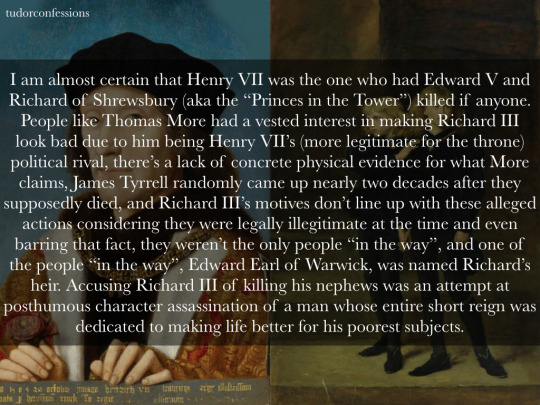
72 notes
·
View notes
Note
Can you do Separately what The Yandere Tudors Men (Edward Seymour, King Henry VIII, Charles Brandon and Thomas Boleyn) would give their Wife a really, REALLY expensive necklace either as a wedding present, a just because present or something following the birth of one of their children?
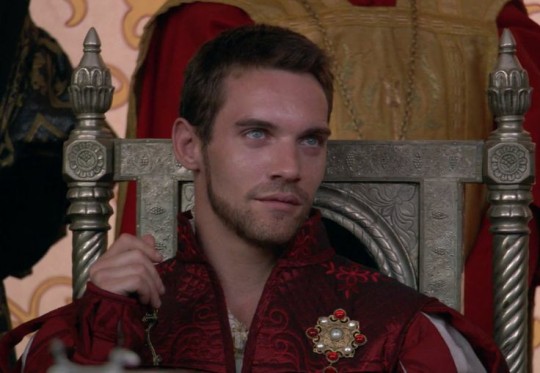
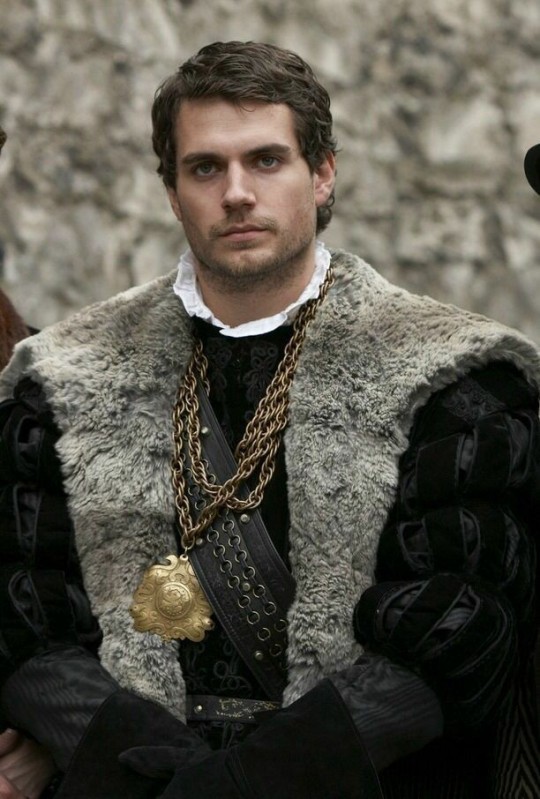
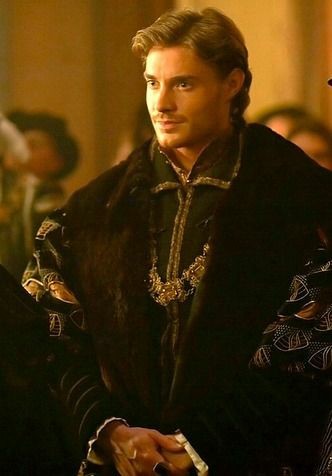
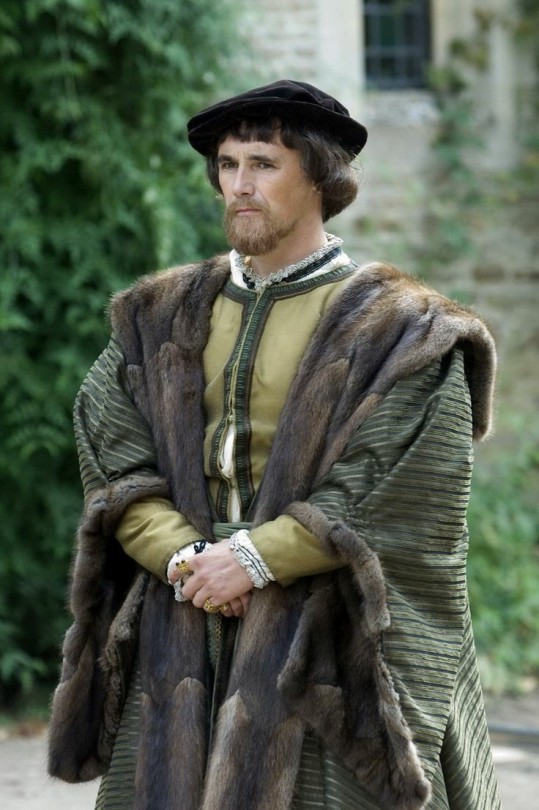
Hello. I hope you like it.
King Henry had passed many difficult trials to marry you. You will never forget the moments of lust and desire you experienced on your wedding night throughout your life. King Henry shed tears of joy when he received the news that you were pregnant. He took very close care of you throughout your pregnancy, unlike usual. Not even a minute was left outside the door of the room where you gave birth for hours. He was praying to God for you and the baby to be delivered safely. When the birth was finally over, he quickly entered the room. You were tiredly smiling at your husband with your newborn son in your arms.
"My King. We now have a male heir."
King Henry came to you and kissed your forehead. It wasn't hard to understand that he was happy and proud from the look on his face when he held your son in his arms.
"My son."
King Henry proudly kissed his newborn son's forehead.
"Our son's name will be Edward. Prince Edward."
You smiled at your husband's words. King Henry gently placed Prince Edward in his crib. He handed you the box in his hand. Surprised, you take the box and open it. Inside the box was a necklace decorated with Tudor symbol roses and made of expensive jewellery.
"My King. This is beautiful."
"Not as much as you."
King Henry took the necklace out of the box and placed it around your neck elegantly.
◇◇◇◇◇◇◇◇◇◇◇◇◇◇◇◇◇◇◇◇◇◇◇◇
You were Charles' third wife. Honestly, you never thought that an arranged marriage would turn into love. Charles was a possessive and passionate husband. Even though his love was suffocating at times, you had learned to cope. Charles did not yet have a son. This meant that a big task was on your shoulders. You got pregnant shortly after the wedding. You honestly thought your husband would move away from you and take mistresses. But it didn't happen as he thought. Months later, you gave birth to healthy twin boys. You would never forget the smile on Charles' face. He held his sons in his arms and wasn't afraid to talk about how proud he was. One of your sons was named John and the other Edmund. After naming the babies, Charles gave you a very dazzling necklace as a gift. From what you heard from your bridesmaids, Charles paid a really large amount of money for this necklace.
◇◇◇◇◇◇◇◇◇◇◇◇◇◇◇◇◇◇◇◇◇◇◇◇
Your wedding to Thomas Boleyn was modest. You came from a noble and powerful family. Frankly, your mother and father were not very keen on this marriage. After all, Thomas Boleyn did not promise great possibilities. After months of conversations, you had finally managed to gain your family's approval. You were getting ready in your room on the wedding night. Thomas slowly pokes his head through the door.
"I got you something, honey. Your wedding gift."
"There was no need, my dear. It is a great gift for me to know that we can spend our lives together now."
"My beautiful wife. I am truly a very lucky man."
Thomas holds out the box he keeps behind his back. You slowly take the box and open it. There is a really expensive necklace inside the box.
"Thomas. This is too expensive."
"I couldn't have a big wedding that suits you. I should have at least bought you a gift that suits you."
"Thank you, Thomas. I will keep this necklace for the rest of my life."
◇◇◇◇◇◇◇◇◇◇◇◇◇◇◇◇◇◇◇◇◇◇◇◇
Your wedding to Edward Seymour was beautiful. It was literally like a fairy tale. Queen Jane had spared no expense for her brother's wedding. The wedding hall was decorated very beautifully. A luxurious wedding dress and a wonderful flower bouquet were prepared. After you put on your wedding dress, the bridesmaids did your make-up and hair. You were waiting for the ceremony to start. There is a knock on your door.
"Come in."
Edward comes in. Edward has a look of admiration on his face.
"Oh my God. You look like an angel."
"Edward, you're embarrassing me."
"I came to give you a gift. I hope you like it."
When you open the box, you are surprised to see the expensive necklace inside.
"Oh. Edward, that's beautiful."
"I'm glad you liked it, my beautiful."
#yandere the tudors#house of tudor#yandere tudors#yandere tudors characters#the tudors#yandere edward seymour#yandere edward seymour x reader#yandere charles brandon#yandere charles brandon xreader#yandere thomas boleyn#yandere thomas boleyn x reader#yandere henry viii#yandere henry viii x reader#yandere king henry viii#yandere historycal characters#yandere male
134 notes
·
View notes